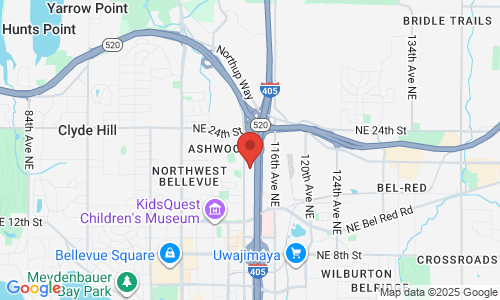Can Anesthesia Cause Brain Damage?
 When people undergo surgery, there are certain risks involved. Some of those risks are related to the use of anesthesia. While a patient is under the effects of anesthesia, they need to be constantly monitored to ensure that oxygen is flowing through the blood properly. If the brain is deprived of oxygen, brain cells can be damaged.
When people undergo surgery, there are certain risks involved. Some of those risks are related to the use of anesthesia. While a patient is under the effects of anesthesia, they need to be constantly monitored to ensure that oxygen is flowing through the blood properly. If the brain is deprived of oxygen, brain cells can be damaged.
Individuals who suffer from brain damage related to anesthesia are likely to suffer catastrophic consequences, which may include a deterioration of cognitive, physical, and emotional functions. The brain injury lawyers at Quick Law Group, PLLC, can help injury victims in the Bellevue, WA, area hold liable parties accountable for injury damages.
How Does Anesthesia Work?
General anesthesia interrupts nerve signals in the brain and body so that patients can go through surgery without feeling any pain, and without having any memory of the procedure. While patients are under the effects of general anesthesia, they are unconscious. The patient’s muscles relax and breathing is depressed. To ensure that the oxygen continues to flow through the blood, and to the brain, patients under general anesthesia are often put on a breathing tube. Whether a breathing tube is placed or not, vitals must be continuously monitored throughout any surgical procedure, and while anesthesia is in effect.
Is Brain Damage A Major Risk of Anesthesia?
Anesthesia slows breathing, but it is not meant to cease respiratory or cardiovascular functions. When anesthesia is administered properly and the patient is monitored, brain damage is a very rare risk of anesthesia. Most patients go through a surgical procedure with no damage to brain cells or tissues.
Anesthesia Errors That Can Lead to Brain Damage
While properly administered anesthesia does not carry a significant risk of brain damage, it is highly possible for patients to suffer from brain damage when errors are made. Some of the anesthesia errors that most commonly lead to brain damage for our Bellevue clients include:
- Improper intubation of the patient (placing a breathing tube incorrectly)
- Failure to monitor blood flow to the brain
- Failure to notice a patient has vomited during surgery (vomit can be inhaled into the lungs and inhibit breathing/oxygen flow)
- Neglecting to monitor a patient after surgery, if anesthesia is still in effect
Liability for Anesthesia Errors
Just because surgery involves a degree of risk, that doesn’t mean that individuals cannot be held liable if they are responsible for an anesthesia error that leads to brain damage. Medical professionals must provide an accepted level of care. This means that a medical professional who makes an error that would not have been made by a similarly trained professional presented with a similar situation can be found negligent and may be sued for medical malpractice.
Brain Damage Losses
Lawyers at Quick Law Group, PLLC, can assist their Bellevue clients in proving medical malpractice and pursuing compensation for all related injury damages. Since brain damage can result in long-term, or lifelong, consequences, patients may be due substantial compensation for losses such as:
- Medical expenses
- Cost of ongoing medical care, rehabilitation, and therapy
- Cost of necessary assistive equipment
- Pain and suffering
- Diminished quality of life
- Lost income
- Loss of wage earning potential
Get In Touch
If you or a loved one has suffered brain damage as the result of an anesthesia error, the brain injury lawyers at Quick Law Group, PLLC, would like to help you collect the compensation you are due for injury damages. To schedule a consultation with our team of lawyers, send us a message online at your earliest convenience, or call (425) 576-8150.



